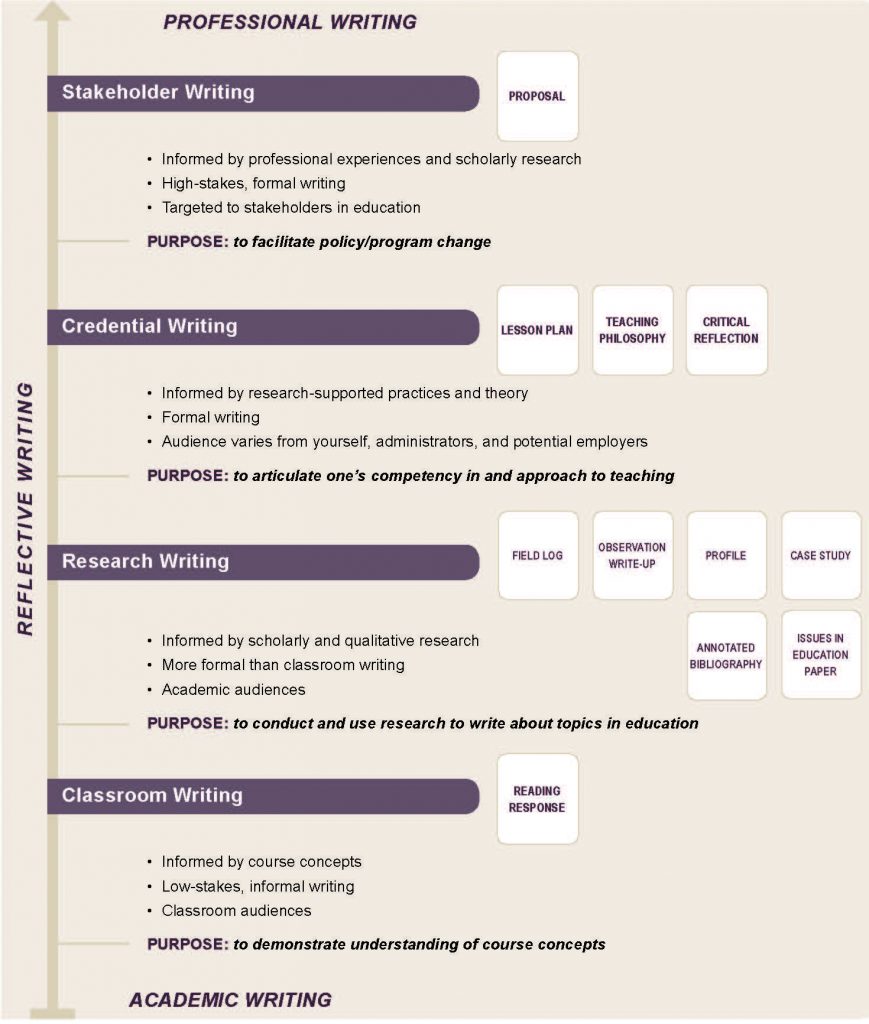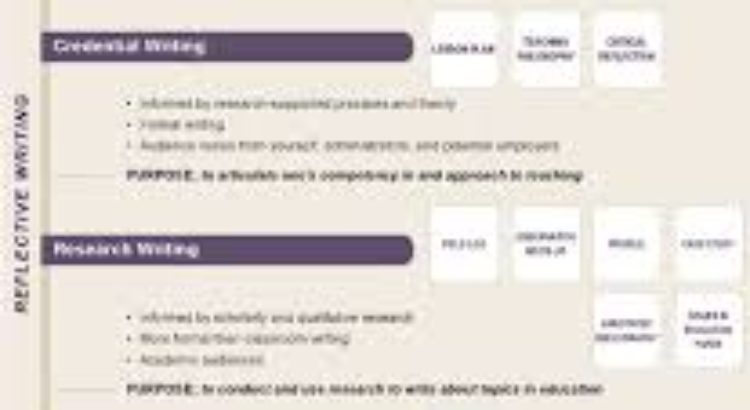By: tcpress.com
As writing teachers, our fundamental pedagogical goal is to facilitate our students’ abilities to develop their voices through writing. We are keenly aware of this goal with our education students, who come to our Writing in Education courses often underestimating the amount, and importance, of writing they will produce as teachers. However, it is because of their underestimation of the role writing will play in their future career that our pedagogical goal is even more crucial because, despite our current educational climate, teachers’ voices matter.
Hicks, Whitney, Fredricksen, and Zuidema (2017) note that teachers’ voices–often represented through writing–play a critical role in providing the best possible learning situations for their students. Because of the increased awareness of the valuable role writing plays in the job responsibilities of educators, teacher educators are now considering how to develop these skills earlier on in the pre-service teachers’ educational trajectory. This awareness of the importance of writing is also mirrored in the Common Core State Standards emphasis on developing writing skills across the curriculum in our K-12 students. The disciplinary focus on writing beckons teacher educators to teach writing skills in addition to content in their theory and methods courses.
In our new text, A Student’s Guide to Academic and Professional Writing in Education, we discuss how pre-service teachers need to be able to navigate the complex rhetorical situations they may face as educators. We explain how applying rhetorical and genre knowledge, in addition to critical reflection skills, supports pre-service teachers who are learning to conceptualize writing as one of their intellectual responsibilities. Teacher educators can use our approach in their education classes to inspire future teachers to see writing as a tool to inquire, question, and discover new knowledge to advocate for positive changes in education.
A RHETORICAL APPROACH
In our courses, and in our book, we take a rhetorical approach for fostering teacher-writers in our pre-service teachers. That is, we introduce our students to the different contexts, audiences, purposes, voices, and genres that they will encounter writing as educators. Learning about common written academic and professional genres found in the field of education, such as observation write-ups, critical reflections, lesson plans, and teaching philosophies, allows pre-service to observe on the complex rhetorical situations in which each genre is used. Genre knowledge, in conjunction with rhetorical knowledge, will prepare help our education students to successfully meet writing tasks they will be presented with when the become educators.
Using a rhetorical approach to teaching writing to education students from various disciplines develops our students’ understanding of the importance of becoming a teacher-writer. Our assignments require our students to think critically about the rhetorical situation surrounding each task and to critically reflect on their role as both a pre-service educator and as a writer in order to successfully complete the task. Our students find this approach empowering and often share that this burgeoning awareness of themselves as writers gives them the confidence and the skills to use writing as a mode of change, both in their own course-work and their future classroom.
DEVELOPING TEACHER-WRITERS THROUGH REFLECTION
By rooting our pedagogy in a rhetorical approach to writing in education, we are, at the same time, requiring that our students examine the space they inhabit in this process and their role within the many rhetorical situations they will find themselves both in our class and in their own classrooms. We believe that reflection is at the very core of writing in education, and that it is through reflection that our students can begin to conceptualize the role writing will play in their intellectual responsibilities as teachers. From the reading responses that our students will write in their education courses to the annual self-evaluation they will complete as classroom teachers, reflection will play a major role in the writing our students will produce. In Figure 1, we isolate reflection as a constant feature throughout the genres our students will encounter in academic and professional rhetorical situations.
Figure 1: Progression from Academic to Professional Writing in the Field of Education

By the end of our writing in education courses our students do not all identify as writers or even as teachers, yet. But, they do leave our classes with a better understanding of, and appreciation for, the writing that they will produce as teachers. Moreover, many understand that developing as teacher-writers will become part of their professional growth in their credential and graduate programs. Our students awareness of the essential need to develop as teacher-writers makes us feel that we have achieved our pedagogical goal and facilitated our students’ abilities to develop their voices through writing both in the present and in the future.
Featured Image: Person writing, public domain via Pixabay.
Katie O. Arosteguy, Alison Bright, and Brenda J. Rinard are senior lecturers in the University Writing Program at the University of California, Davis, where they teach professional writing, including a course on writing in education. They are all National Writing Project Teacher-Consultants.
By the end of our writing in education courses our students do not all identify as writers or even as teachers, yet. But, they do leave our classes with a better understanding of, and appreciation for, the writing that they will produce as teachers. Moreover, many understand that developing as teacher-writers will become part of their professional growth in their credential and graduate programs. Our students awareness of the essential need to develop as teacher-writers makes us feel that we have achieved our pedagogical goal and facilitated our students’ abilities to develop their voices through writing both in the present and in the future.
Featured Image: Person writing, public domain via Pixabay.
Katie O. Arosteguy, Alison Bright, and Brenda J. Rinard are senior lecturers in the University Writing Program at the University of California, Davis, where they teach professional writing, including a course on writing in education. They are all National Writing Project Teacher-Consultants.
Fuente de la Información: https://www.tcpress.com/blog/professional-writing-education/







 Users Today : 30
Users Today : 30 Total Users : 35459625
Total Users : 35459625 Views Today : 71
Views Today : 71 Total views : 3418043
Total views : 3418043